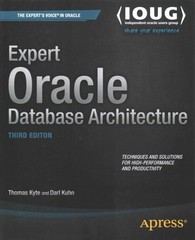Question
PLEASE HELP ME OUT WITH THIS QUESTION You have been provided with a Set ADT developed by a third party. This consists of a header
PLEASE HELP ME OUT WITH THIS QUESTION
You have been provided with a Set ADT developed by a third party. This consists of a header file, set.h, defining the interface and the object file, coming soon (as a zip file), compiled for use in our Mac lab. You must implement a complete unit test suite to validate all functionality defined in the header file.
Requirements and Notes
Hand in your main.c file (containing your test suite implementation) and a Makefile to compile your code and link it with set.o.
set.h
#ifndef _SET_H
#define _SET_H
typedef enum BOOL { false, true } Boolean;
typedef struct SET Set;
// Returns true if there are currently *no* set objects in existence.
Boolean validateMemUse();
// Set constructor
Set * newSet();
//Set destructor
Set * deleteSet(Set * theSet);
// Insert an item into a set, noting that sets do not contain duplicate items.
// Returns true if the item was added to the set.
Boolean insertItem(Set * const theSet, const int newItem);
// Remove a given item, if it appears in the set.
// Returns true if the item was removed from the set.
Boolean removeItem(Set * const theSet, const int givenItem);
// Returns true if the two sets contain the same items.
Boolean equals(Set const * const setA, Set const * const setB);
// Return a new set that is the union of two sets (the two sets should be
// unchanged by the operation).
//
// The union of two sets A and B is defined to be another set
// containing all the items in A and all the items in B.
// (Note: Any item that is in BOTH A and B appears only once
// in the union, because no set contains duplicate items.)
// Example: If A = { 1, 2, 3 } and B = { 2, 4, 5, 6 }, then
// the union of A and B is the set { 1, 2, 3, 4, 5, 6 }.
Set * unionOf(Set const * const setA, Set const * const setB);
// Return a new set that is the intersection of two sets (the two sets should be
// unchanged by the operation).
//
// The intersection of two sets A and B is defined to be another set
// containing all the items in both A and B.
// Example: If A = { 1, 2, 3, 4 } and B = { 2, 3, 5 }, then
// the intersection of A and B is the set { 2, 3 }.
Set * intersectionOf(Set const * const setA, Set const * const setB);
// Return a new set that is the difference of two sets (the two sets should be
// unchanged by the operation).
//
// The difference (A\B) of two sets A and B is defined to be
// another set containing all the items in A that are NOT in B.
// Example: If A = { 1, 2, 3 } and B = { 2, 4, 5, 6 }, then
// the difference A\B of A and B is the set { 1, 3 }.
Set * differenceOf(Set const * const setA, Set const * const setB);
#endif
Step by Step Solution
There are 3 Steps involved in it
Step: 1

Get Instant Access to Expert-Tailored Solutions
See step-by-step solutions with expert insights and AI powered tools for academic success
Step: 2

Step: 3

Ace Your Homework with AI
Get the answers you need in no time with our AI-driven, step-by-step assistance
Get Started


